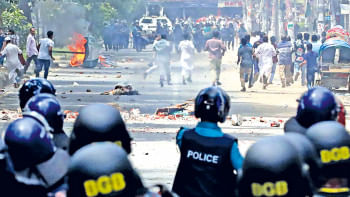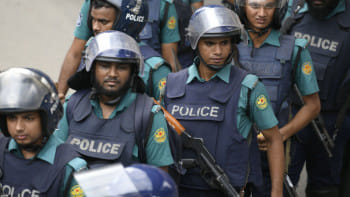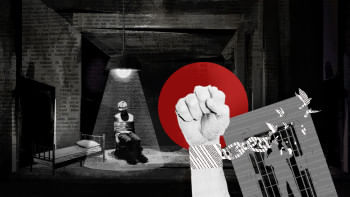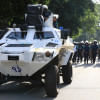Restoring full police capacity is vital for public security

It is disheartening that the police still remain in a state of disarray despite attempts in recent weeks to overhaul the force and imbue it with a new sense of direction. According to a report by this daily, the violent fallout of the regime change on August 5 continues to cast a shadow over the force even now, with logistical challenges as well as low morale due to the fear of withdrawal, transfer, forced retirement, lawsuits and/or arrest still stifling their capacity. This cannot be allowed to persist, as the role of the police is critical in maintaining law and order, ensuring public security, and preventing chaos.
Presently, police services remain largely limited to registering complaints and cases. Despite all police stations resuming their operations several weeks ago, there has been little field presence of officers, especially after dark and without army escorts. Meanwhile, the national helpline 999 continues to struggle to provide services because of the lack of police personnel and logistical support. For a time, all the 999 calls asking for police help were referred to the armed forces. Even though the home adviser has urged the superintendents of police to work sincerely with the force and logistics they have in their respective districts, a number of issues have combined to make progress difficult.
Key among them is the lack of morale. Reportedly, the fear of being sued or arrested or, worse, facing public wrath for police actions during the bloody mass uprising still haunts police members. To this day, over 700-800 officers remain absent without leave. Add to that the fear of being withdrawn or transferred, with major reshuffles being announced every now and then. There is no easy solution for this. It is natural for police, after having served as enforcers of an authoritarian regime for over a decade, to find themselves caught between the need to redeem their credibility and the lingering fear of consequences. Ensuring accountability and creating an enabling environment for police are both important. The authorities must find a way to achieve these objectives with tact, and with people's expectations in mind.
The issue of diminished operational capability is another major barrier, one that should be handled with relative ease, however. Given the overarching need of public safety, the authorities must urgently expedite their efforts to reinforce and restructure the police force, make necessary resources available, and repair damaged infrastructure. Soon after the mass uprising, over 450 out of 664 police stations were attacked by mobs, with some set on fire. Around 300 vehicles were also destroyed. Large quantities of firearms and ammunition were looted as well, leaving a security concern for the future. Restoring full police capability means addressing all such logistical issues as well as staff shortages created afterwards, through new recruitments if necessary.
We must say that we expect a better performance from the interim government in terms of fully operationalising the police force. Police must be able to secure the streets, protect citizens, and prevent crimes. The responsibility to ensure that they are able to do so lies on the government. Reforms cannot happen overnight, so striking a balance between reform and general functionality may be considered in the short term, keeping long-term reforms for the future.


 For all latest news, follow The Daily Star's Google News channel.
For all latest news, follow The Daily Star's Google News channel. 











Comments